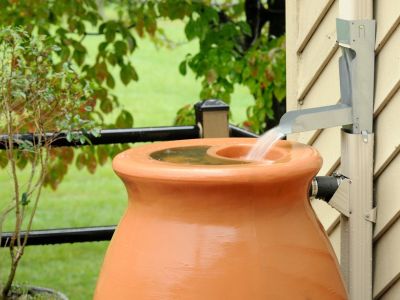Using rainwater to irrigate can save money on your water bill, but in some areas rainwater collection is actually illegal. This is due to drought conditions where the water needs to percolate naturally to irrigate wild flora. But where the practice is legal, is rain water good for plants? The answer is complex, with several factors affecting outcomes.
Should You Use Tap Water?
Concerns over levels of lead, chlorine, and other compounds in water have raised questions about the use of tap water on our plants. In most cases, tap water is safe because it is tested and regulated to conform to safety standards in drinking water. Using tap water on plants should therefore be safe, except in the cases of very sensitive species and certain edibles. If you are concerned about your tap water, it may be boiled or simply left out for several hours to off-gas certain compounds. Then the tap water will be pure enough to irrigate plants.
Is Rain Water Good for Plants?
As with nearly everything, there are pros and cons to using rain water for plants. The benefits of rain water encompass conservation, cost, and ease of collection. It may also be higher in nitrogen with a more elevated pH than tap water. The chlorine and fluoride levels in most tap water can actually stop plants from effectively taking up nitrogen. Some drinking water also contains harmful levels of sodium. Rain water that has been exposed to lightning is particularly beneficial. The benefits of rainwater exposed to lightning are higher levels of nitrogen and ammonium. These are transformed into available supplies by beneficial microbes, fungi, and bacteria for easy uptake by plant roots.
Disadvantage of Rain Water
In the end, rain water has certain advantages over tap water. But the manner in which it is harvested can affect those positives. Water should be caught in containers which are clean and covered to prevent debris and mosquito colonies. Certain plastics give off potentially harmful gases. Metal containers are generally appropriate. Rain water run-off from roof areas poses some concern. Roof run-off may contain high levels of zinc, copper, lead, and bacteria such as E. coli. Treating the barrel with a small amount of household bleach once per month can also reduce levels of bad bacteria. Experts suggest using roof water only on the roots of plants but never on leafy edibles.
